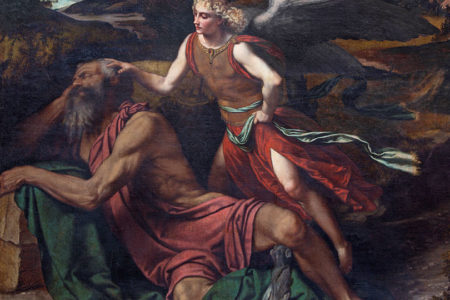A ‘Taste of Heaven’ Sabbath Song
The prophet Elijah is perhaps the most beloved prophet in the Bible. He is the forerunner of the Messiah and the promised Messianic Age (Mal. 4:5–6). He is so special he is featured in some of Israel’s beloved observances, such as the Havdalah.
The Hebrew word Havdalah means “separation” or “distinction.” It is the ritual and prayer that mark the end of the Sabbath, and it is designed to show the distinction between the holy day that is departing and the ordinary weekday that is coming.
Not only has the Sabbath been viewed as sacred, but it also has been seen as a brief relief from the daily trials and tribulations of living as Jews in a hostile world. It pictures the future Messianic Kingdom of God’s rest (cf. Isa. 66:22–23).
In some homes during the Sabbath, two songs are sung. The first is one the ancient Levites sang in the Temple: Psalm 92, the Sabbath song “for the time-to-come, for the day that shall be all Sabbath and rest in the life everlasting” (Mishna Tamid 7:4).
Since the 11th century, the second has become customary at the end of the Havdalah service. It is titled “Eliyahu HaNavi,” meaning “Elijah the Prophet”; and it reflects a yearning faith that anticipates Elijah’s arrival to announce the coming of the Messiah and the end of all human suffering (cf. Mal. 4:5–6; Talmud Eruvin 43b).
Some believe observing the Sabbath and singing “Eliyahu HaNavi” is like “an overpowering taste of heaven on earth and the World to Come.” The words in English go like this:
Elijah the Prophet,
Elijah the Tishbite,
Elijah, Elijah,
Elijah the Gileadite.
Speedily and in our days,
Come to us,
With the messiah, son of David,
With the messiah, son of David.
The Messianic Kingdom to come has been called the “world of the eternal Shabbat,” a time of rest and eternal life (cf. Talmud Rosh Hashanah 31a). As believers in Messiah Jesus, we, too, await a future Messianic Kingdom—one that will cover the whole Earth and never be destroyed (Dan. 2:44). We embrace the testimony of Scripture: Jesus is the spiritual Sabbath who gives us rest today and the matchless gift of eternal life through faith in Him (Heb. 4:1–11).









Are the Ten Commandments as presented in Exodus 20 considered God’s standard of right and wrong or righteousness for Jews and Christians alike?
Hi thanks very. My name is Michael Ape in all my life my burning desired is to know hebrew culture and customs,why l believe it will helped to understand the bible. Am really blessed by reading.
May our good Lord blessed you
Hi, this is a beautiful piece. I’m a worship leader for our little Bible study. Wondering if there’s an actual song that goes with these words.
Shalom
Ruthie Simmons